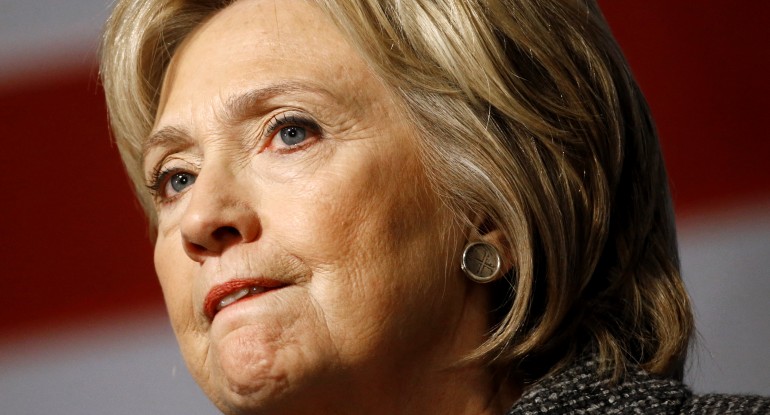Clinton's Insecure Emails Jeopardized Lives
By Debra Heine
PJMedia.com

It appears that a key question regarding Hillary Clinton's use of a private, insecure email server while secretary of State has been answered. A U.S. government official has confirmed to Fox News that highly classified emails, which the intelligence community and State Department recently deemed too sensitive to ever release, contain “operational intelligence” and did indeed jeopardize “sources, methods, and lives”:
The official, who was not authorized to speak on the record and was limited in discussing the contents because of their highly classified nature, was referring to the 22 “TOP SECRET” emails that the State Department announced Friday it could not release in any form, even with entire sections redacted.
The announcement fueled criticism of Clinton’s handling of highly sensitive information while secretary of state, even as the Clinton campaign continued to downplay the matter as the product of an interagency dispute over classification. But the U.S. government official’s description provides confirmation that the emails contained closely held government secrets. “Operational intelligence” can be real-time information about intelligence collection, sources and the movement of assets.
The official emphasized that the “TOP SECRET” documents were sent over an extended period of time -- from shortly after the server's 2009 installation until early 2013 when Clinton stepped down as secretary of state.
Keep in mind: these top-secret emails are ones that Clinton's "clean-up squad" missed. Some 30,000 emails were deleted without anyone outside State reviewing them, although those emails were reportedly later recovered by federal investigators.
Rep. Mike Pompeo of Kansas, a senior Republican on the House Intelligence Committee, has read the emails in question. He says that Clinton -- a former senator and Yale-trained lawyer -- "had to know what she was dealing with":
There is no way that someone, a senior government official who has been handling classified information for a good chunk of their adult life, could not have known that this information ought to be classified, whether it was marked or not. ... Anyone with the capacity to read and an understanding of American national security, an 8th grade reading level or above, would understand that the release of this information or the potential breach of a non-secure system presented risk to American national security.
Pompeo went on to suggest that military and intelligence communities may "have had to change operations, because the Clinton server could have been compromised by a third party."
Clinton again downplayed the significance of the classified material over the weekend, repeating her standard response: "[T]here is no classified marked information on those emails sent or received by me."
But even Clinton Foundation donor George Stephanopoulos knew enough to point out that she signed a non-disclosure agreement in 2009 that states "classified information is marked or unmarked … including oral communications."
Clinton had no answer for that -- none that made sense, anyway.

